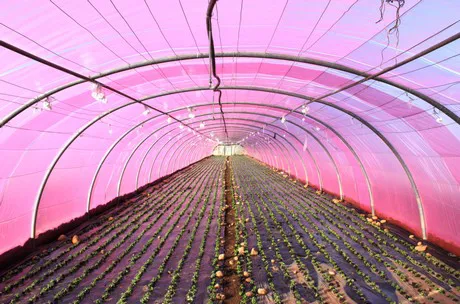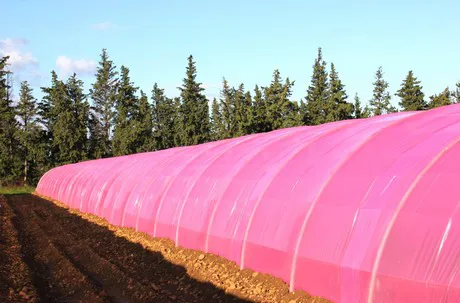“The technology we use actually involves no filtering,” explained PhotoFuel's chief scientific officer Timmy Floume. “What we do is shift wavelengths to modify the sunlight spectrum reaching the plants.” They work with photoluminescent plastic to shift light wavelengths to provide the optimal conditions for a variety of settings. For greenhouses, where plants thrive under red light and reflect away unused green light, the goal is to change green light into the red light that plants crave. That extra energy benefits plants, and the increased yields benefit growers.

Trials
“We ran trials on different types of salad crops, and we found an increase in weight between 10 percent and 30 percent for crops grown under our P-Film® greenhouse cover” noted Floume. Similar results were found for greenbeans, which recorded an astonishing 70 percent increase in weight (preliminary measurement), and zucchinis, which experienced a 10 percent weight gain. A benefit of the technology is that it's simple, because once the panels films are installed there is little else to be done other than standard maintenance. The concept is so effective that PhotoFuel uses it in other fields as well.
PV
The idea behind the concept comes from the PV industry. “We use photoluminescence in photovoltaic solar panels to convert ultraviolet light into usable blue light,” noted Floume. “It's the same concept, but we just shift ultraviolet light into visible light to capture energy with the panels.” Because the manufacturing process is simple, they can adjust the product to work in a variety of locations, and it's proven to be very effective so far.“Plants don't need much green light, so we convert it into usable light for increased yields,” Floume summed up. “It's a big advantage for the plants with great returns for the growers.”
 For more information:
For more information:PhotoFuel SAS
Tel: +331 84 16 60 02
info@photofuel.fr
www.photofuel.fr/p-film
